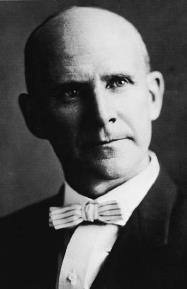The Fuller Court (1888–1910)Labor |
What was the Fuller Court’s first decision in which it applied the Sherman Antitrust Act? |
The Fuller Court first considered a Sherman antitrust action in its famous United States v. E. C. Knight (1895) decision, which dealt with the government’s action against the American Sugar Refining Company. The firm had acquired virtually all of the sugar refining interests in the country, triggering the government’s contention that the company had built a monopoly and restrained trade. The Court determined the antitrust law did not enable Congress to regulate the manufacture of products in individual states even if those products eventually reached into commerce and traveled into other states. The Court drew a sharp distinction between manufacturing and commerce, which limited Congress’s power. “Commerce succeeds to manufacture and is not a part of it,” wrote Chief Justice Fuller. “The fact that an article is manufactured for export to another state does not of itself make it an article of interstate commerce, and the intent of the manufacturer does not determine the time when the article or product passes from the control of the state and belongs to commerce.”
Only Justice John Marshall Harlan dissented, reasoning that Congress must have the power to deal with “gigantic monopolies.”

